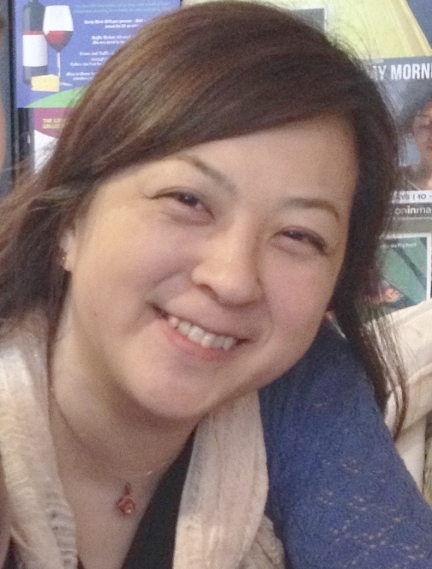Sayaka Abe
Associate Professor of Japanese Studies and Linguistics, Chair of Japanese Studies

- Office
- FIC Freeman LF01E
- sabe@middlebury.edu
- Office Hours
- Spring 2026: Tuesday, Wednesday and Thursday 11:15 a.m.-12:15 p.m. and by appointment.
Sayaka Abe teaches linguistics and Japanese language courses at the Vermont campus, as well as a graduate linguistics course for the Master of Arts in Japanese Language and Culture program. She received her Ph.D. in Linguistics from University at Buffalo in 2007. Her research areas include cognitive linguistics, historical linguistics and educational linguistics. Before coming to Middlebury, she worked as a researcher at the University of Trento and taught primarily at liberal arts colleges in the US, including Vassar College and Williams College. Abe is a former chief editor and is currently an editor of Journal CAJLE.
Courses Taught
JAPN 0102
First-Year Japanese
Course Description
First-Year Japanese
This course is an intensive continuation of JAPN 0101. This course is required for those students wishing to take JAPN 0103 in the Spring. (JAPN 0101)
Terms Taught
Requirements
JAPN 0103
First-Year Japanese
Course Description
First-Year Japanese
This course is a continuation of the fall and winter terms with the introduction of more advanced grammatical structures, vocabulary, and characters. The continuing emphasis of the beginning Japanese course will be upon acquisition of well-balanced language skills based on an understanding of the actual use of the language in the Japanese sociocultural context. (JAPN 0101, JAPN 0102) 3 hrs. lect./3 hrs. drill
Terms Taught
Requirements
JAPN 0210
Intro Japanese Linguistics
Course Description
Introduction to Japanese Linguistics (in English)
In this course, we will explore the structure and usage of Japanese through speech and text samples from media, entertainment, and everyday communication. We will analyze speech sounds (phonetics/phonology), word formation (morphology), sentence formation (syntax), and larger structures (discourse), alongside current research on vocabulary (lexicon) and meaning (semantics). Students will develop problem-solving and reasoning skills by applying linguistic theories to various data, learning to formulate research questions and support arguments with evidence. Through comparing Japanese with English and other languages, students will engage in discussions about the similarities and differences among diverse human communication systems. This course is taught in English; no Japanese or linguistics knowledge is required. 3 hrs. lect./disc.
Terms Taught
Requirements
JAPN 0301
Third-Year Japanese
Course Description
Third-Year Japanese
This advanced course aims to increase the student's proficiency in modern standard Japanese, both spoken and written. A variety of written and audiovisual materials will be used to consolidate and expand mastery of more advanced grammatical points and vocabulary. Oral presentation, discussion, and composition in Japanese are also important components of the course. (JAPN 0202 or equivalent) 3 hrs. lect./3 hrs. drill
Terms Taught
Requirements
JAPN 0302
Current
Third-Year Japanese
Course Description
Third-Year Japanese
This course is a continuation of JAPN 0301. (JAPN 0301 or placement exam) 3 hrs. lect./3 hrs. drill
Terms Taught
Requirements
JAPN 0310
Variation & Change in Japanese
Course Description
Variation and Change in Japanese (In English)
What can linguistic change tell us about human cognition and behavior? How does the notion of “politeness” vary across communities? How do speakers of Japanese perform gender and other social identities? In this course we will address linguistic diversity and dynamism by examining the Japanese language. Topics include workplace discourse and change in honorific systems. Employing classic works in linguistics and addressing contemporary cultural materials such as manga and J-drama we will apply theoretical frameworks from (socio-)pragmatics, historical linguistics and linguistic typology to gain a deeper understanding of how and why Japanese has developed to its present forms and uses. Students with an interest in linguistics, or in teaching and learning language, or science in general, may also enjoy the analytical approach. (No prerequisites. JAPN0103 above or equivalent recommended). Heritage speakers are also welcome. 3 hrs. sem.
Terms Taught
Requirements
JAPN 0401
Advanced Japanese
Course Description
Advanced Japanese
In this course we will read, analyze, and discuss advanced Japanese materials from a variety of modern and contemporary sources. (JAPN 0302 or equivalent) 3 hrs. lect./disc.
Terms Taught
Requirements
JAPN 0485
Current
Expressive Japanese
Course Description
Expressive Japanese
In this seminar, we engage in an in-depth exploration of the psychological dimensions of Japanese expressions across various genres, such as gastronomy, music, arts, fictions and science. We analyze how states, events and causation, as well as sensory experience (taste, sound, vision, emotion) are conveyed in language through cross-linguistic and cross-cultural comparison, critical reading. Students will investigate often-overlooked aspects of Japanese, including motion verbs, emotion adjectives, logical connectives, modality markers and figurative speech, while drawing on their own thematic interests. Activities include quizzes, exercises, discussions, presentations and projects. This class is taught primarily in Japanese. (JAPN 0402 concurrent or prior)
Terms Taught
Requirements
JAPN 0500
Current
Upcoming
Independent Project
Course Description
Qualified students may be permitted to undertake a special project in reading and research under the direction of a member of the department. Students should seek an advisor and submit a proposal to the department well in advance of registration for the term in which the work is to be undertaken.
Terms Taught
JAPN 0700
Current
Upcoming
Honors Thesis
Course Description
Honors Thesis
Students write a thesis in English with a synopsis in Japanese on literature, film, or culture. The topic for the thesis is chosen in consultation with the instructor. (JAPN 0475)
Terms Taught
LNGT 0500
Upcoming
Independent Work
Course Description
Independent Work
(Approval Required)
Terms Taught
